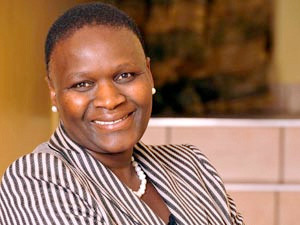
The Council for Scientific and Industrial Research (CSIR) and the South African Police Service (SAPS) have signed a memorandum of agreement that will boost "smart policing" in SA.
The organisations aim to create an institutional framework for the SAPS to have direct access to a scientific, engineering and technology base to support both the operational and strategic components of its duty towards national safety and security.
In a joint statement, the CSIR and SAPS say the agreement is a formal step towards the longer-term objective to establish a Safety and Security Evaluation and Research Institute that will perform independent, ongoing scientific and operational research and evaluation tasks, and provide scientific decision support services to the SAPS, as and when required.
The institutional framework outlines a portfolio of research and technology support programmes with deliverables over a three-year period.
The first programme will address command, control and shared situational awareness solutions, including technologies such as sensors, data fusion, intelligence and information-gathering, display and dissemination, plus associated IT infrastructure, as well as operational command and control systems and infrastructure.
In the ICT domain, the CSIR will focus on optimising systems within the SAPS to improve efficiency and cost-effectiveness. The programme will be conducted in alignment with the CSIR's relationship with the State IT Agency, which has a statutory mandate regarding ICT services for government.
Smart planning
Under the agreement, the CSIR's responsibilities will lie in research and development, and include next-generation network systems architecting, analysis, simulation and evaluation, wireless solutions, cyber security and digital forensics.
"The SAPS has a responsibility towards the safety and security of our people," says Dr Sibusiso Sibisi, CSIR chief executive officer.
"As the CSIR, it is our duty to contribute to areas of national importance - safety and security is one of our priorities. We can offer the SAPS a great wealth of multi-disciplinary science and research to support smart planning, smart technology use to support their technical capability," Sibisi added.
The organisations believe integration and interoperability are key means of optimising existing infrastructure and resources in defence and security. This entails finding ways for the smarter use of existing equipment and systems, and avoiding new investments, the pitfalls of vendor lock-in, and risks of costly yet soon obsolete systems.
Through the agreement, the SAPS will also have access to knowledgeable, technically and operationally skilled personnel to respond to immediate needs at short notice to provide solutions to immediate problems. Additionally, and with a longer term view, the CSIR says it will perform operational assessments of current doctrine, tactics, procedures, optimising the use of personnel, systems and equipment.
The research institute believes the programme to drive science and technology capability development is set to bring skills and capabilities to the SAPS to support systems and product evaluation, acquisition, product deployment or customisation, plus establish new technical capabilities that are currently underutilised.
Funnelling expertise
In the area of strategic and operational decision support, activities will focus on establishing a scientific decision support base for the SAPS for both operational and strategic needs. This will include tender support, programme and project management support (quality assurance and configuration management), strategic technology forecasting, analysis and modelling (for example, crime statistics) and facility planning.
SAPS national commissioner Riah Phiyega says the signing of this agreement is a critical milestone in the journey of transforming the SAPS.
"We will cooperate and obtain expertise in all areas of policing, including technologies, research, procurement and skills development. We must continually enhance our ability to respond quickly, smartly and effectively to challenges. This is a step, among many, in that direction."
Science and technology minister Derek Hanekom also congratulated the CSIR and SAPS on the agreement: "Fighting crime is one of the government's five priorities, and the Department of Science and Technology commends this strategic partnership."
ITWeb witnessed the signing of the Memorandum of Agreement between SAPS and CSIR on 18 February.
Share